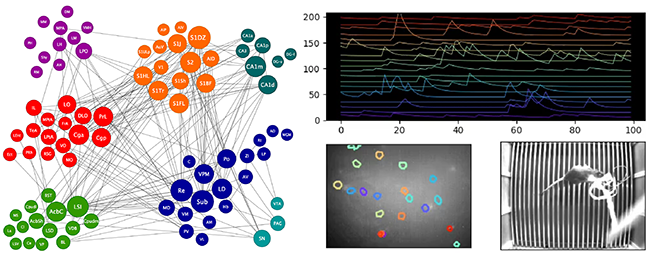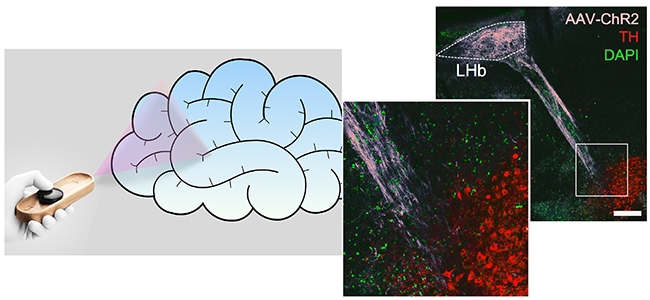When a memory is formed, the brain undergoes a substantial rearrangement to support the consolidation of the memory trace and its recall at a remote time point.
Brain regions that are more active when a past event is recalled are also the ones with a stronger synaptic connectivity (Vetere 2011, PNAS ; Restivo*, Vetere* 2009, JN). These findings support the hypothesis that the reactivation of specific neurons requires the strengthening of synaptic connections between populations of neurons.
The morphological changes occurring during consolidation at a synaptic level strength connections between specific regions, resulting in a broad change at a network level.
The synaptic rewiring that occurs during memory consolidation redistribute the functional connections between regions, shifting the network hubs to a differentconfiguration (Vetere 2017, Neuron).
The purpose of our laboratory is to study :
(1) synaptic and circuit mechanisms underlying consolidation of a memory trace
(2) the nature of engram cells in the brain.

(1) As past achievements, we investigated whether the functional connectivity of a fear memory network can successfully predicts the regions of the brain that are necessary in memory consolidation (Vetere, Neuron, 2017). The graph theory analysis of memory networks opens new doors in the discovery of brain regions and pathways involved in memory performances.
Using this approach we want to identify new circuits involved in memory consolidation. Then we target and manipulate (via optogenetics and chemogenetics) selected regions/pathways to study their involvement in the memory recall.
We are also using a miniaturized microscope to visualize the in vivo neuronal activity of these regions to study how their activity changes during memory consolidation.
Moreover, the network-based approach that we are using is a powerful tool that can provide testable predictions about the regions that may be impaired in cognitive disease.
Subsequent direct manipulations of these pathways can provide causal evidences of their involvement in the disease.

(2) Our second main research interest is the study of mechanisms underlying memory encoding, specifically the contribution of the ensembles of cells that encode external stimuli in the brain (engram cells).
Is there a code in the brain that process external stimuli ? Can we use this code to implant false perceptions, emotional memories ?
By simply knowing the identity of the cells that are responsible for encoding a specific external stimulus, we can create a memory of an event never experienced before.
Research in the past decade has shown how optical activation of engram cells can influence recall and even generate artificial memories. We were able to optogenetically implant a new memory of an aversive event that was never experienced before (Vetere et al, in preparation).
These results show, for the first time, that by simply knowing the identity of the cells that are responsible for encoding a specific external stimulus, we can create a memory for that specific stimulus without the animal physically experiencing the stimulus.
Techniques available in Vetere Lab :
1) Optogenetics and chemogenetics
2) In vivo Ca2+ imaging via miniaturized microscope
3) Graph theory analysis of whole-brain networks
4) Viral-mediated pathway mapping to manipulate specific neuronal circuits


